
The Heartbeat of Jeju: Jeju City Center
Jeju City Center is the vibrant heart of Jeju City, South Korea. This bustling neighborhood is a delightful mix of modernity and tradition, offering a unique experience for tourists. The streets are lined with an array of shops, from high-end boutiques to charming local markets, making it a shopper’s paradise. The area is also known for its diverse culinary scene, featuring both local Jeju delicacies and international cuisines. Jeju City Center is not just about shopping and eating; it’s also a cultural hub. The Jeju Folklore & Natural History Museum provides a deep dive into the island’s rich history and natural beauty. Meanwhile, the nearby Jeju NANTA Theatre offers a unique blend of traditional Korean drumming with modern performance art, making it a must-see for culture enthusiasts. Nature lovers will also find solace in the Jeju City Center, with easy access to scenic spots like the Yongduam Rock, also known as Dragon Head Rock, which offers stunning coastal views. The neighborhood's central location makes it an excellent base for exploring the rest of Jeju Island, with convenient transport links to various attractions and natural wonders.
Local tips in Jeju City Center
- Visit early in the morning to avoid crowds and get the best shopping deals.
- Don’t miss the local street food stalls for an authentic taste of Jeju cuisine.
- Check the schedule of Jeju NANTA Theatre in advance to catch a performance.
- Wear comfortable shoes as you’ll do a lot of walking while exploring the area.
- Use public transportation; it’s efficient and the best way to navigate through the city.
The Heartbeat of Jeju: Jeju City Center
Jeju City Center is the vibrant heart of Jeju City, South Korea. This bustling neighborhood is a delightful mix of modernity and tradition, offering a unique experience for tourists. The streets are lined with an array of shops, from high-end boutiques to charming local markets, making it a shopper’s paradise. The area is also known for its diverse culinary scene, featuring both local Jeju delicacies and international cuisines. Jeju City Center is not just about shopping and eating; it’s also a cultural hub. The Jeju Folklore & Natural History Museum provides a deep dive into the island’s rich history and natural beauty. Meanwhile, the nearby Jeju NANTA Theatre offers a unique blend of traditional Korean drumming with modern performance art, making it a must-see for culture enthusiasts. Nature lovers will also find solace in the Jeju City Center, with easy access to scenic spots like the Yongduam Rock, also known as Dragon Head Rock, which offers stunning coastal views. The neighborhood's central location makes it an excellent base for exploring the rest of Jeju Island, with convenient transport links to various attractions and natural wonders.
Iconic landmarks you can’t miss
Hanwha Resort Jeju
Experience the serene beauty of Jeju Island at Hanwha Resort, your ultimate destination for relaxation and adventure in South Korea.

Jeju World Natural Heritage Center
Explore Jeju Island's unique volcanic landscapes and biodiversity at the Jeju World Natural Heritage Center, an educational gem for nature lovers.
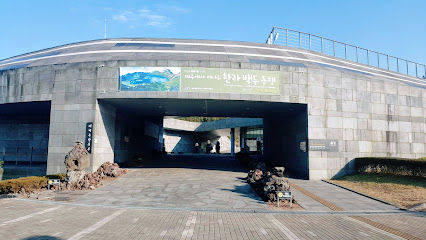
Nuwemaru Street (Pedestrian Shopping Street)
Discover the vibrant Nuwemaru Street in Jeju-si, where shopping, street food, and local culture come together in a unique pedestrian experience.
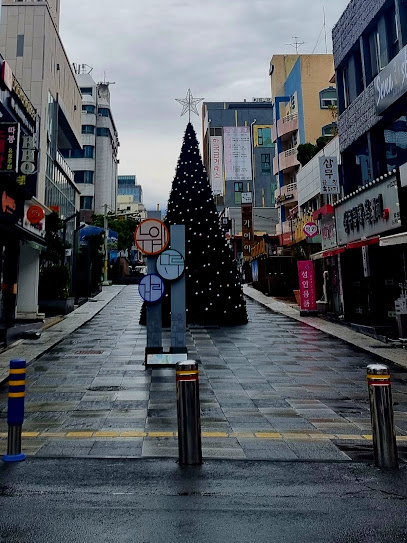
Chilsungro Shopping Town
Discover the heart of Jeju shopping at Chilsungro Shopping Town, where vibrant shops and delicious street food await every visitor.
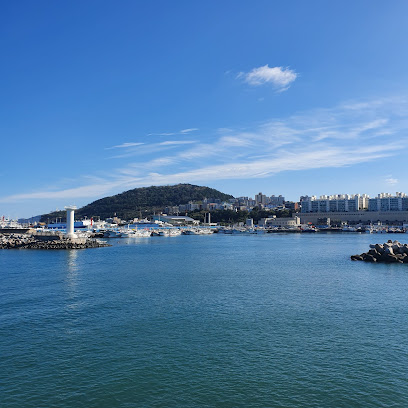
Jeju International Peace Centre
Discover the Jeju International Peace Centre, a serene destination dedicated to promoting peace and understanding amidst stunning natural beauty.
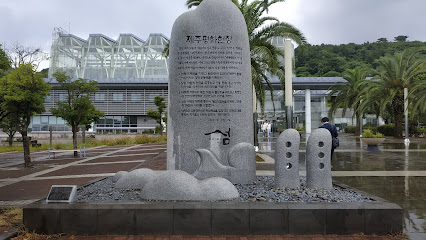
Jeju premium center
Explore the Jeju Premium Center for unbeatable discounts on luxury brands amidst the beautiful backdrop of Jeju Island.
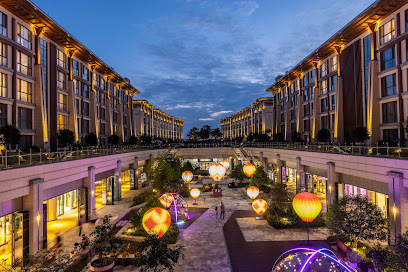
더 아일랜더 (The Islander)
Explore The Islander, Jeju's premier souvenir store, where local craftsmanship meets unforgettable island memories.
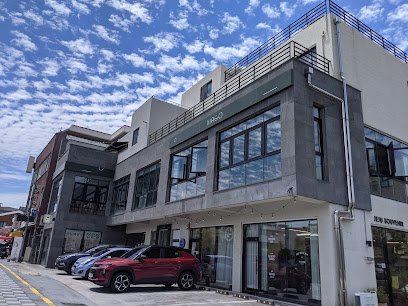
Lotte Duty Free Shop - Jeju Airport Branch
Discover exceptional shopping at Lotte Duty Free Shop, Jeju Airport - your gateway to luxury and local treasures in a tax-free paradise.
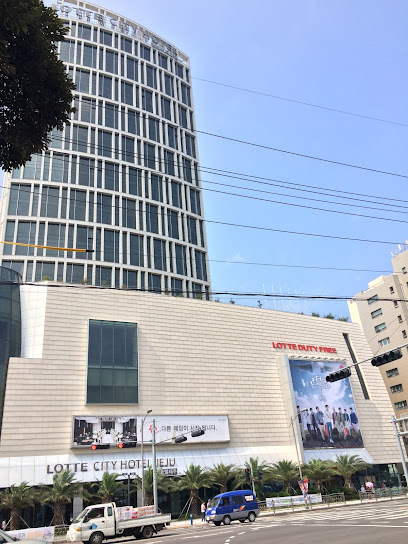
Jeju Tourist Information Center
Explore Jeju Island's wonders at the Jeju Tourist Information Center, your gateway to adventure, culture, and breathtaking landscapes.
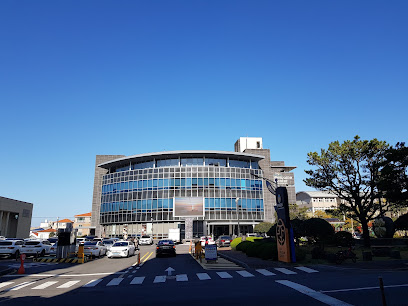
Jeju Central Park
Discover the natural beauty and tranquility of Jeju Central Park, a perfect leisure center for relaxation and enjoyment amidst lush landscapes.
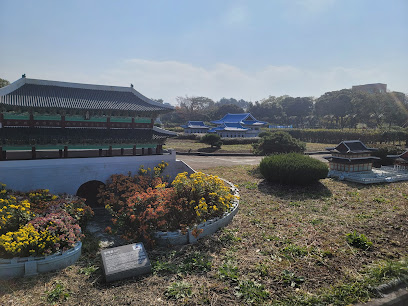
Unmissable attractions to see
Yongduam Rock
Discover the breathtaking beauty of Yongduam Rock, a stunning volcanic formation on Jeju Island that captures the essence of nature's artistry.
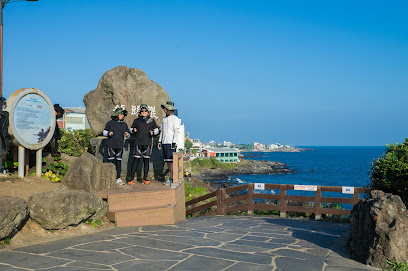
Sumokwon theme park
Experience the thrill and joy at Sumokwon Theme Park, a premier destination for family fun and adventure in Jeju, South Korea.
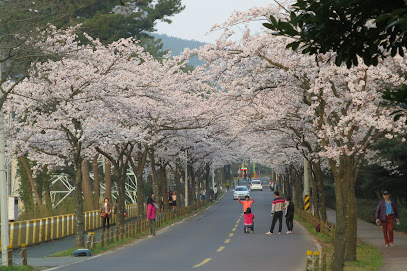
Jeju Glass Castle
Explore the magical world of glass art at Jeju Glass Castle, a unique theme park in Jeju Island filled with stunning sculptures and interactive experiences.
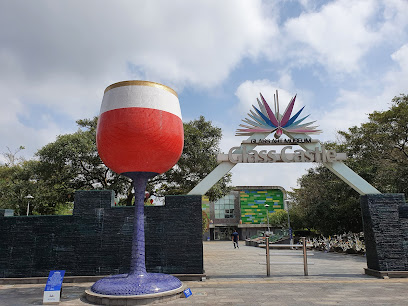
Jeju Stone Park
Experience the breathtaking beauty and geological wonders of Jeju Stone Park, a must-visit destination on Jeju Island for nature lovers.
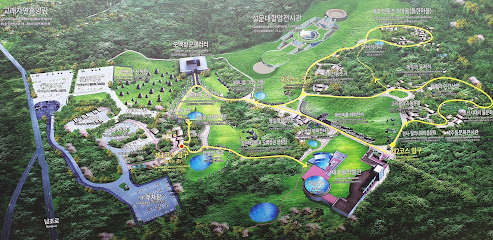
Jeju Light Garden
Discover the enchanting beauty of Jeju Light Garden, a must-visit theme park in Jeju-si, showcasing stunning light displays that transform the night into a magical wonderland.
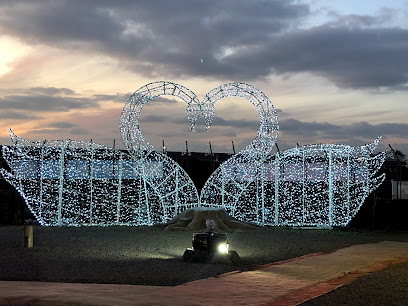
Jejumok Gwana Government Office
Explore the Jejumok Gwana Government Office, a historic gem in Jeju City showcasing traditional architecture and rich cultural heritage.
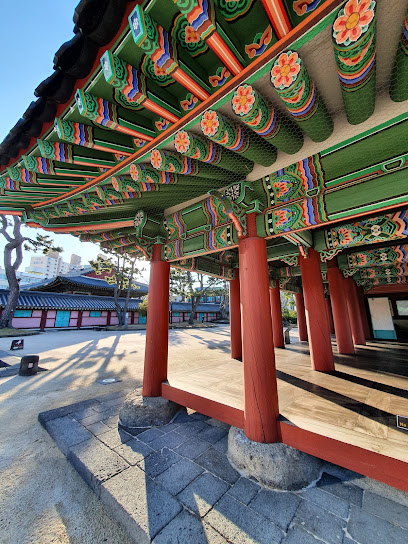
Nuwemaru Street (Pedestrian Shopping Street)
Discover the heart of Jeju-si at Nuwemaru Street, a pedestrian shopping paradise filled with unique shops, local flavors, and vibrant culture.
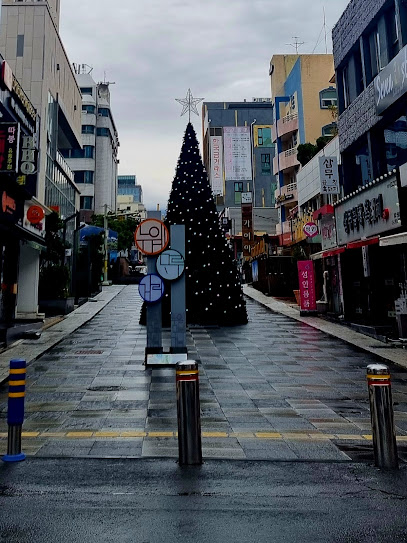
Jeju Mini Land
Experience the world in miniature at Jeju Mini Land, a captivating museum with stunning replicas of global landmarks, perfect for all ages.
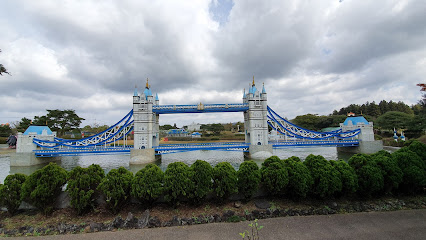
Jeju Big Ball Land
Dive into adventure at Jeju Big Ball Land, where rolling fun meets stunning natural beauty on Jeju Island.
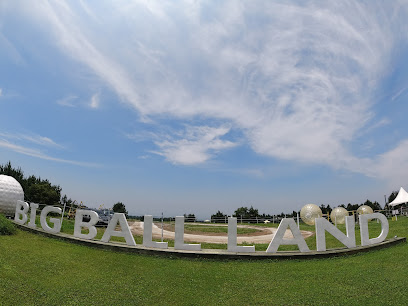
Jeju Loveland
Discover Jeju Loveland, a whimsical theme park filled with playful sculptures and art celebrating love and humor on Jeju Island.

Essential places to dine
Ujin Haejangguk
Discover authentic Korean hangover soup at Ujin Haejangguk in Jeju—where tradition meets flavor in every comforting bowl.
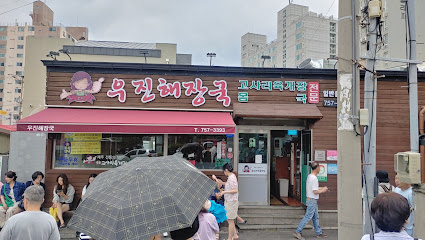
Ollae Guksu
Experience authentic Korean noodles at Ollae Guksu, where every dish tells a story of tradition and flavor on beautiful Jeju Island.
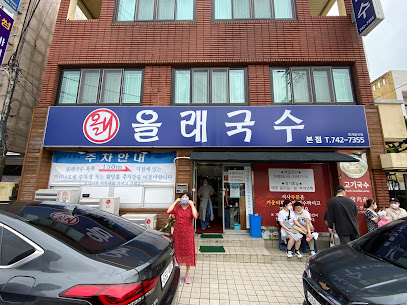
Gozip Dol Wooluck
Discover the authentic taste of Korea at Gozip Dol Wooluck in Jeju – where tradition meets flavor in every dish.
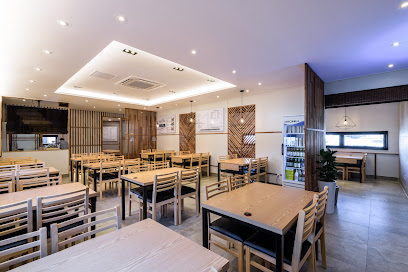
Jeju Gommak Restaurant
Experience the freshest sashimi at Jeju Gommak Restaurant - where Korean culinary traditions meet oceanic delights.
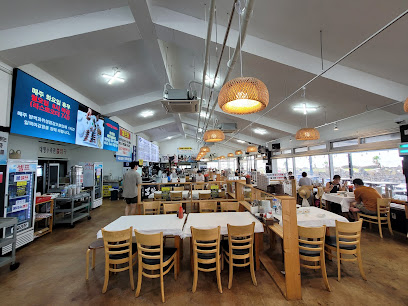
Yuri-ne Restaurant
Discover the exquisite flavors of Jeju Island at Yuri-ne Restaurant, where local ingredients meet innovative culinary artistry.
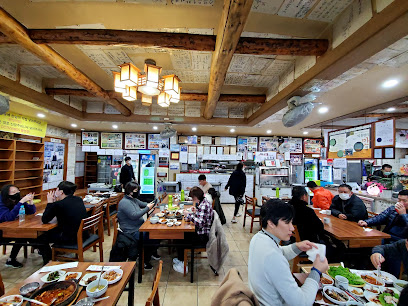
Michin kitchen (Crazy Kitchen)
Experience authentic Japanese flavors at Michin Kitchen in Jeju - where culinary excellence meets vibrant ambiance.
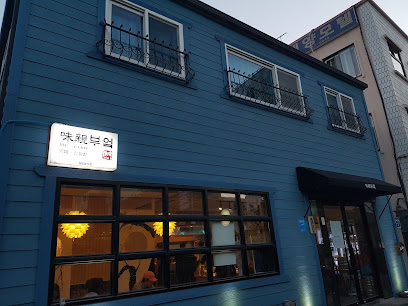
Bagdad Halal Jeju
Discover authentic Indian Muslim cuisine at Bagdad Halal Jeju - where flavors meet culture in the heart of Jeju City.
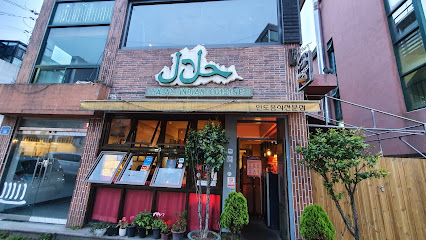
Jeju Asalam Restaurant
Discover authentic Yemenite cuisine at Jeju Asalam Restaurant - a culinary gem offering rich flavors and warm hospitality on Jeju Island.
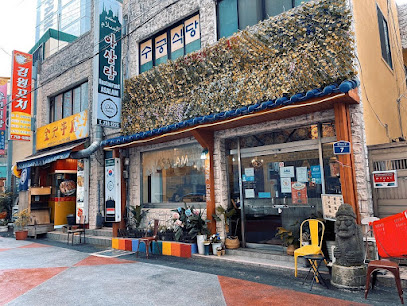
Jeju Among
Discover fresh seafood delights at Jeju Among - a coastal gem near the airport offering authentic Korean flavors in a breathtaking setting.
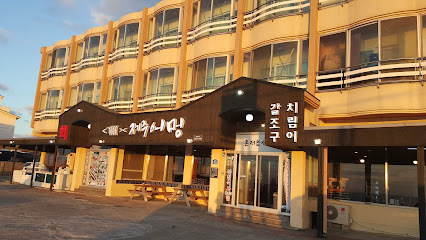
Black Pork Street
Experience Jeju's famous black pork barbecue at Black Pork Street – a must-visit culinary destination for every traveler.
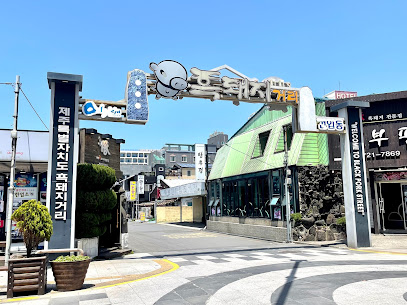
Warda restaurant
Savor authentic Yemenite cuisine at Warda Restaurant in Jeju - where every dish tells a story.
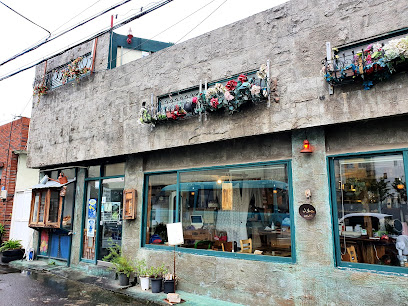
Yang’s Jeju Abalone Kalguksu Main Branch 양씨네 제주전복칼국수 본점
Savor the authentic taste of Jeju Island at Yang’s Jeju Abalone Kalguksu – home to exquisite abalone kalguksu and fresh seafood delights.
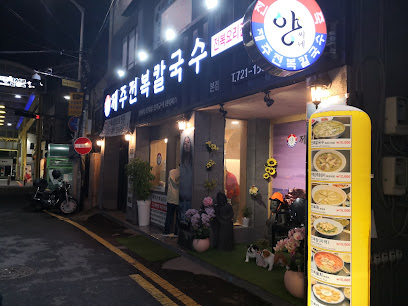
Markets, malls and hidden boutiques
Jungang Underground Shopping Center
Explore Jungang Underground Shopping Center in Jeju, where shopping meets local culture in a vibrant subterranean setting.
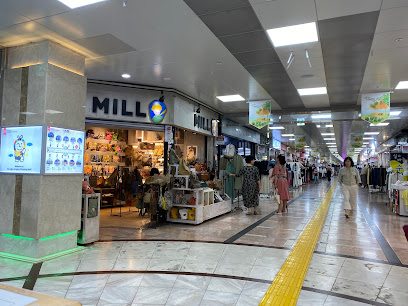
JTO Duty Free Shop
Experience the ultimate shopping destination in Jeju at JTO Duty Free Shop, where luxury meets affordability amidst breathtaking island views.
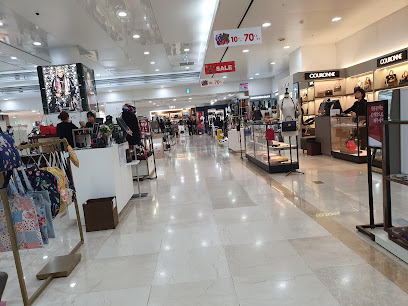
Chilsungro Shopping Town
Discover the bustling Chilsungro Shopping Town in Jeju, where vibrant shops and delicious cuisine await every visitor.
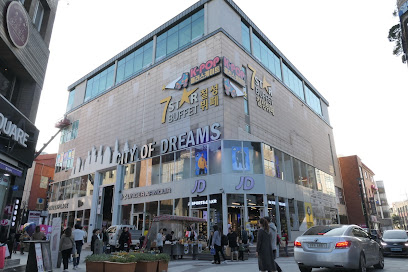
Shinhwa Shopping Street
Discover the lively Shinhwa Shopping Street in Jeju, where shopping, dining, and local culture converge for an unforgettable experience.
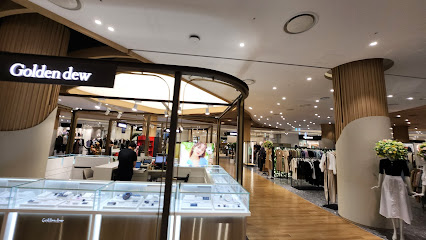
Jeju premium center
Discover unbeatable deals on luxury brands in the heart of Jeju Island at Jeju Premium Center, your ultimate shopping destination.
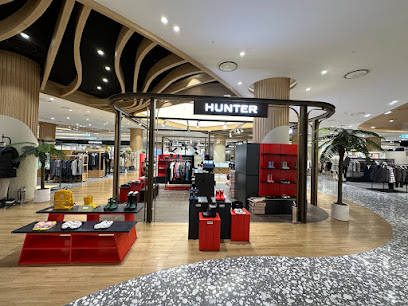
더 아일랜더 (The Islander)
Discover unique local crafts and authentic gifts at The Islander, a charming souvenir store in Jeju that encapsulates the island's spirit.
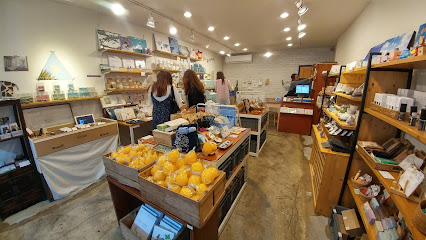
Lotte Duty Free Shop - Jeju Airport Branch
Shop at Lotte Duty Free Shop in Jeju Airport for exclusive deals on luxury brands and authentic Korean products before your departure.
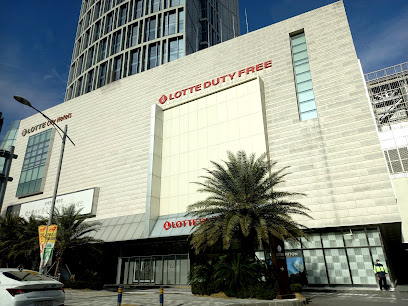
Hi jeju Gift shop
Explore the charm of Jeju Island at Hi Jeju Gift Shop, where authentic souvenirs and local crafts await every traveler.
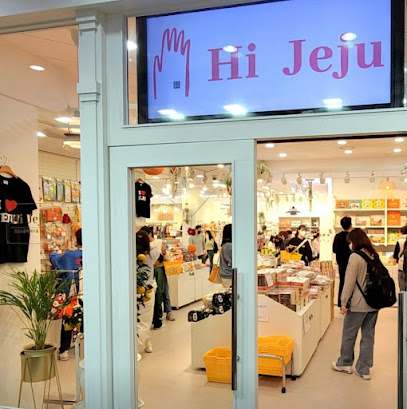
Shopping st Jeju
Discover the vibrant blend of shopping, dining, and culture at Shopping st Jeju, the ultimate destination for tourists in Jeju-do.

Jeju Electonic Cigarette Department Store
Discover the ultimate destination for vaping enthusiasts in Jeju with a vast selection of e-liquids and devices at the Jeju Electronic Cigarette Department Store.

Essential bars & hidden hideouts
The Cliff
Experience breathtaking ocean views and exquisite cuisine at The Cliff, a premier bar and lounge in Jeju-do, perfect for every occasion.
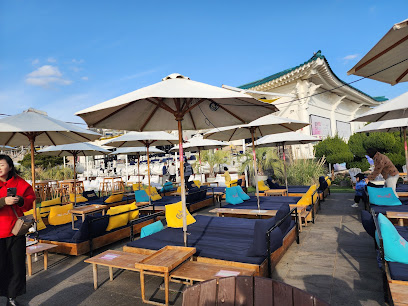
Bluebird by Magpie
Experience the vibrant nightlife of Jeju-do at Bluebird by Magpie, where delicious pizzas and craft beers await in a welcoming atmosphere.
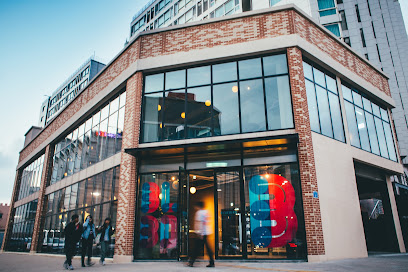
Jerry's Pub
Experience the vibrant nightlife at Jerry's Pub in Seogwipo, Jeju-do, where locals and tourists gather for great drinks and even better company.
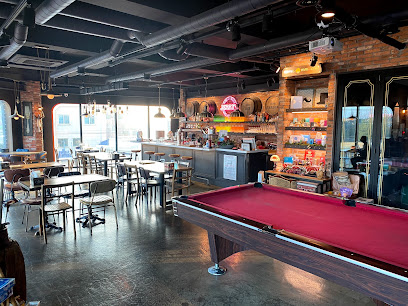
Brooklyn Jeju
Brooklyn Jeju: Dive into the heart of Jeju's vibrant nightlife with exquisite drinks, live music, and an inviting atmosphere.
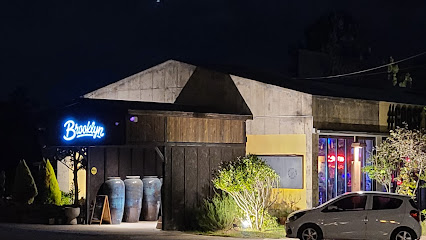
The Booze
Experience the vibrant nightlife of Jeju at The Booze, the island's premier cocktail bar, known for its innovative drinks and lively ambiance.
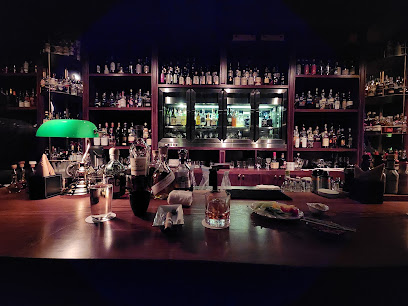
Goofy Foot Jeju
Experience the vibrant atmosphere and delicious grilled cuisine at Goofy Foot Jeju, a top dining and nightlife destination in Jeju Island.
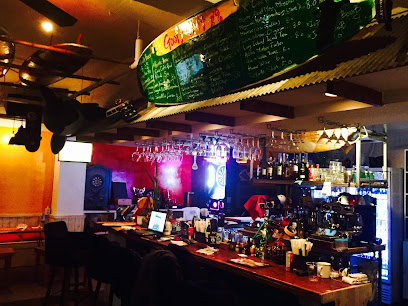
Led Zeppelin Jeju
Discover the best of Irish pub culture at Led Zeppelin Jeju with a vibrant atmosphere, extensive drink selection, and live entertainment.
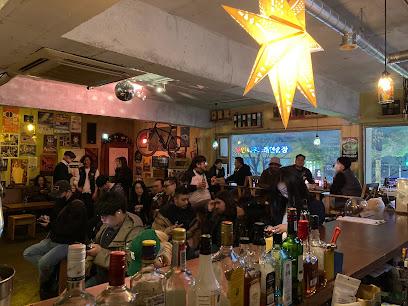
Island Stone
Discover the vibrant nightlife of Jeju-do at Island Stone, a bar offering a blend of local flavors and international drinks in a lively atmosphere.
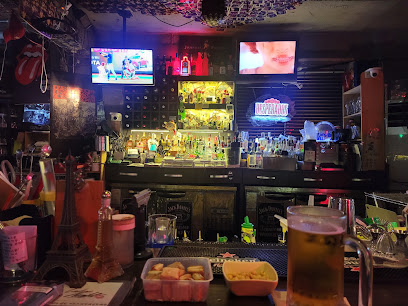
Social bar k100
Discover the lively ambiance and unique cocktails at Social Bar K100, a must-visit cocktail bar in the heart of Jeju's nightlife.
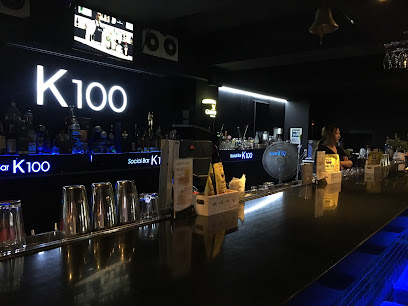
Club Indie
Discover the heart of Jeju's nightlife at Club Indie, where live music and vibrant energy come together for an unforgettable experience.
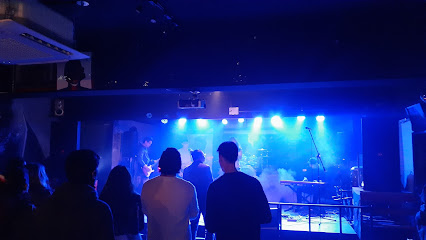
The Bar
Discover the vibrant nightlife of Jeju-si at The Bar, where locals and travelers connect over cocktails and camaraderie.
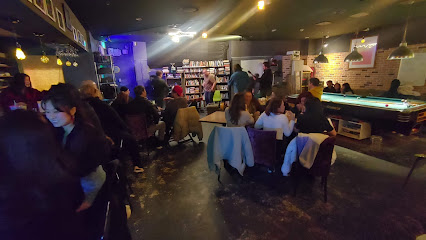
제주 홀리데이 로맨스 Jeju Holiday Romance
Discover the perfect blend of relaxation and charm at Jeju Holiday Romance, a captivating bar and cafe in the heart of Jeju-do.
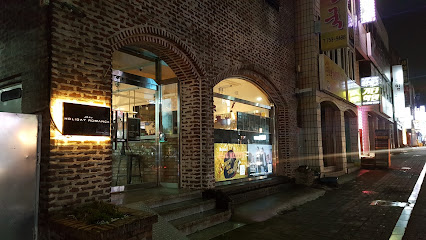
UNDER LOUNGE JEJU CITYHALL
Experience the vibrant nightlife of Jeju at UNDER LOUNGE, a modern bar with craft cocktails and a unique underground atmosphere.
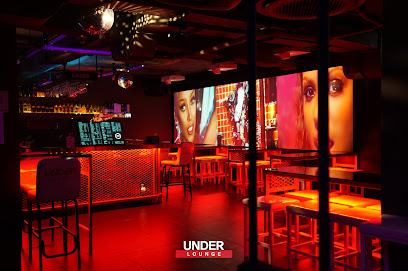
Local Phrases
-
- Hello안녕하세요
[annyeonghaseyo] - Goodbye안녕히 가세요
[annyeonghi gaseyo] - Yes네
[ne] - No아니요
[aniyo] - Please/You're welcome부탁합니다/천만에요
[butakhamnida/cheonmaneyo] - Thank you감사합니다
[gamsahamnida] - Excuse me/Sorry죄송합니다
[joesonghamnida] - How are you?어떻게 지내세요?
[eotteoke jinaeseyo?] - Fine. And you?잘 지내고 너는?
[jal jinaego noneun?] - Do you speak English?영어 할 줄 아세요?
[yeongeo hal jul aseyo?] - I don't understand이해하지 못합니다
[ihaehaji moshapnida]
- Hello안녕하세요
-
- I'd like to see the menu, please메뉴를 보여주세요
[menyureul boyeojuseyo] - I don't eat meat고기를 먹지 않아요
[gogireul meokji anayo] - Cheers!건배!
[geonbae!] - I would like to pay, please결제하고 싶어요
[gyeoljehago sipeoyo]
- I'd like to see the menu, please메뉴를 보여주세요
-
- Help!도와주세요!
[dowajuseyo!] - Go away!가라!
[gara!] - Call the Police!경찰을 부르세요!
[gyeongchareul bureuseyo!] - Call a doctor!의사를 부르세요!
[uisareul bureuseyo!] - I'm lost길을 잃었어요
[gireul ilheosseoyo] - I'm ill아파요
[apayo]
- Help!도와주세요!
-
- I'd like to buy...사고 싶어요...
[sago sipeoyo...] - I'm just looking구경만 하고 있어요
[gugyeongman hago isseoyo] - How much is it?얼마에요?
[eolmaeyo?] - That's too expensive너무 비싸요
[neomu bissayo] - Can you lower the price?가격을 깎을 수 있나요?
[gageogeul kkageul su innayo?]
- I'd like to buy...사고 싶어요...
-
- What time is it?지금 몇 시에요?
[jigeum myeot sieyo?] - It's one o'clock한 시에요
[han sieyo] - Half past (10)10시 반
[sip si ban] - Morning아침
[achim] - Afternoon오후
[ohu] - Evening저녁
[jeonyeok] - Yesterday어제
[eoje] - Today오늘
[oneul] - Tomorrow내일
[naeil] - 1하나
[hana] - 2둘
[dul] - 3셋
[set] - 4넷
[net] - 5다섯
[daseot] - 6여섯
[yeoseot] - 7일곱
[ilgop] - 8여덟
[yeodeol] - 9아홉
[ahop] - 10열
[yeol]
- What time is it?지금 몇 시에요?
-
- Where's a/the...?...이 어디에 있어요?
[...i eodie isseoyo?] - What's the address?주소가 무엇이에요?
[jusoga mueosieyo?] - Can you show me (on the map)?(지도에서) 보여주실 수 있나요?
[(jidoeseo) boyeojusil su innayo?] - When's the next (bus)?다음 (버스) 언제와요?
[daeum (beoseu) eonjewayo?] - A ticket (to ....)(...로 가는) 티켓 하나 주세요
[(...ro ganeun) tiket hana juseyo]
- Where's a/the...?...이 어디에 있어요?
History of Jeju City Center
-
Jeju Island, known as 'Tamna' in ancient times, has a rich history that dates back to the Three Kingdoms Period (57 BC - 668 AD). The island was inhabited by the indigenous people known as 'Tamna' and played a significant role as a maritime trade hub due to its strategic location between the Korean Peninsula and Japan.
-
During the Joseon Dynasty (1392-1910), Jeju City became an administrative center. In 1914, the government integrated the island into the Korean national framework, designating Jeju City as the provincial capital. This led to the establishment of various governmental institutions, shaping the city’s modern urban landscape.
-
From 1910 to 1945, during the Japanese occupation of Korea, Jeju City experienced significant cultural and social changes. The Japanese imposed their language and culture, leading to a decline in native traditions. However, this period also saw the development of infrastructure, including roads and schools, which laid the groundwork for modern Jeju City.
-
One of the most significant events in Jeju's history is the April 3 Incident (1948-1949), a tragic uprising against the government that resulted in thousands of deaths. The event had a profound impact on the island's community and is commemorated annually, reflecting the resilience and enduring spirit of its people.
-
In recent decades, Jeju City has transformed into a major tourist destination, attracting millions of visitors annually. The city has embraced its unique cultural heritage, promoting local customs, cuisine, and natural beauty, while also adapting to modern economic opportunities driven by tourism and technology.
Jeju City Center Essentials
-
Jeju City Center is easily accessible from various parts of Jeju Island. The main gateway is Jeju International Airport, located just a 10-15 minute taxi ride away. From other neighborhoods, local buses are available, with routes connecting to the city center. Taxis are also a convenient option, and rideshare services operate in the area.
-
Jeju City Center is well-connected by a comprehensive bus system that covers major attractions and neighborhoods. Bicycles can be rented from various shops and are a great way to explore the area at your own pace. For short distances, walking is encouraged, as many attractions are within walking distance. Taxis are readily available and affordable for longer trips.
-
Jeju City Center is generally safe for tourists. However, it is advisable to stay vigilant in crowded areas, especially markets and public transportation. While the city has a low crime rate, petty theft can occur. Avoid poorly lit areas at night, particularly around the outskirts of the city center.
-
In case of emergency, dial 119 for fire and medical emergencies, and 112 for police assistance. Familiarize yourself with the nearest hospitals or clinics in the area. It is advisable to have travel insurance that covers medical emergencies. Pharmacies are widely available for minor health issues.
-
Fashion: Do dress modestly when visiting temples or religious sites. Don't wear revealing clothing in these areas. Religion: Do show respect for local customs, especially in religious settings. Public Transport: Do give up your seat for the elderly and pregnant women. Don't eat or drink on public transport. Greetings: Do greet with a polite nod or a handshake. Eating & Drinking: Do try local dishes and share food with locals. Don't waste food, as it is considered impolite.
-
To experience Jeju City Center like a local, visit the traditional markets such as Dongmun Market for fresh produce and local snacks. Engage with local vendors and try the street food. Consider taking a bus tour to explore the surrounding natural attractions like Hallasan National Park. For a unique experience, participate in seasonal festivals that showcase local culture and traditions.
Trending Landmarks in Jeju City Center
Nearby Cities to Jeju City Center
-
Things To Do in Mokpo
-
Things To Do in Suncheon
-
Things To Do in Gwangju
-
Things To Do in Jeonju
-
Things To Do in Busan
-
Things To Do in Daegu
-
Things To Do in Daejeon
-
Things To Do in Ulsan
-
Things To Do in Gyeongju
-
Things To Do in Fukuoka
-
Things To Do in Pohang
-
Things To Do in Andong
-
Things To Do in Suwon
-
Things To Do in Incheon
-
Things To Do in Seoul








